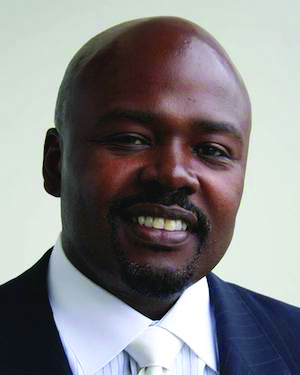John Fountain pours out his wisdom to NEIU students: ‘Our stories Matter’

Photo of John Fountain from the Loyola employee portal website.
February 26, 2019
John W. Fountain is a man of many hats: a Chicago Sun-Times journalist, professor, author and publisher. On Feb. 20, Fountain held a talk titled, “Our Stories Matter,” at NEIU’s Jacob Carruthers Center for Inner City Studies in Bronzeville in honor of Black History Month.
This date was no coincidence. Feb. 20, 1895, Frederick Douglass, known as the Lion of Anacostia, died. Douglass was a historical figure known for his powerful evolution from a fugitive slave to famed orator and author of “My Bondage and My Freedom.” This date was used as a precedent to help set the tone for his intended message, “Our Stories Matter.”
In the beginning of the talk, Fountain stated, “Until the lion learns how to write, every story will glorify the hunter. We must tell our own stories. Tell the story. Let our voices resound; Let it ring from the depths of our souls, wet with the tears of our ancestors, that it may fertilize the ground.”
In the above quote, Fountain demonstrated and appreciated the historical power of Sankofa. He expressed the importance of knowing one’s cultural history, reaching back and connecting with ancestors, and understanding the importance of telling our own story. Fountain said, “Let not our dreams of writing be deferred to fester and run. Tell our stories in the fullness of their redemptive splendor; filled with the myriad complexities of life, love, and tender. Memories of rhapsodies and countless subtleties of our world, and our time; pungent with the fragrance of our music; our rhythms, and our rhymes of what obstacles we face, of those we embraced, of those who obstructed; and of those who denied us justice. Tell the story of how we overcame.”
He described how despite stereotypes, media and false literature used to stagnate and marginalize a people; the tools of writing, reading and voice must be used to uplift and motivate us to tell our stories correctly. “I was inspired to become more vocal about my story and where I come from while supporting other cultural backgrounds doing the same,” Vice President of Inner City Scholars, Andrew Calderon, said.
Fountain covered three important subtopics in his talk; why our stories matter, why we must tell our own stories and how we can effectively tell these stories. During the talk, Fountain vents about his frustration with trying to report crime in specific areas while working as a crime reporter for the Chicago Tribune.
Fountain said, “Truth is, murder and other crimes that occurs in certain communities are not considered news but the norm.”
He explained we must tell our stories because we don’t need anyone else to write our story. Editors decide what stories go in the newspaper. There are few editors of color. Fountain said, “No outside tongue gifted in eloquence, can tell our story.”
In order to effectively tell a story, Fountain argued one must first realize there is a story to tell: your story. Once this is realized, the next step is to hone and be proud of your story. With a short PowerPoint presentation with slave narratives playing loudly, Fountain used historical context to support the importance of our story and why it actually matters. Even the most marginalized voice can be heard; it’s about being brave enough to open it, despite consequences.
The event concluded with a small Q & A. “I was inspired to hear how John Fountain aspired to become a journalist. It was very moving and inspirational. It was warming how relatable and conversational he was,” Administrative Assistant Barbara Stovall said.
Born and raised on the west side of Chicago, Fountain’s a true Chicago native. Despite his upbringing and economic instability, Fountain graduated from the University of Illinois at Urbana-Champaign. He’s authored several books and has been worked for some of the nations top newspapers. He worked at the Washington Post, Chicago Tribune and the New York Times. Throughout 25 years of journalism, Fountain has done most of his work reporting on the murders in Chicago and has prided himself on speaking on behalf of those marginalized and silenced.







